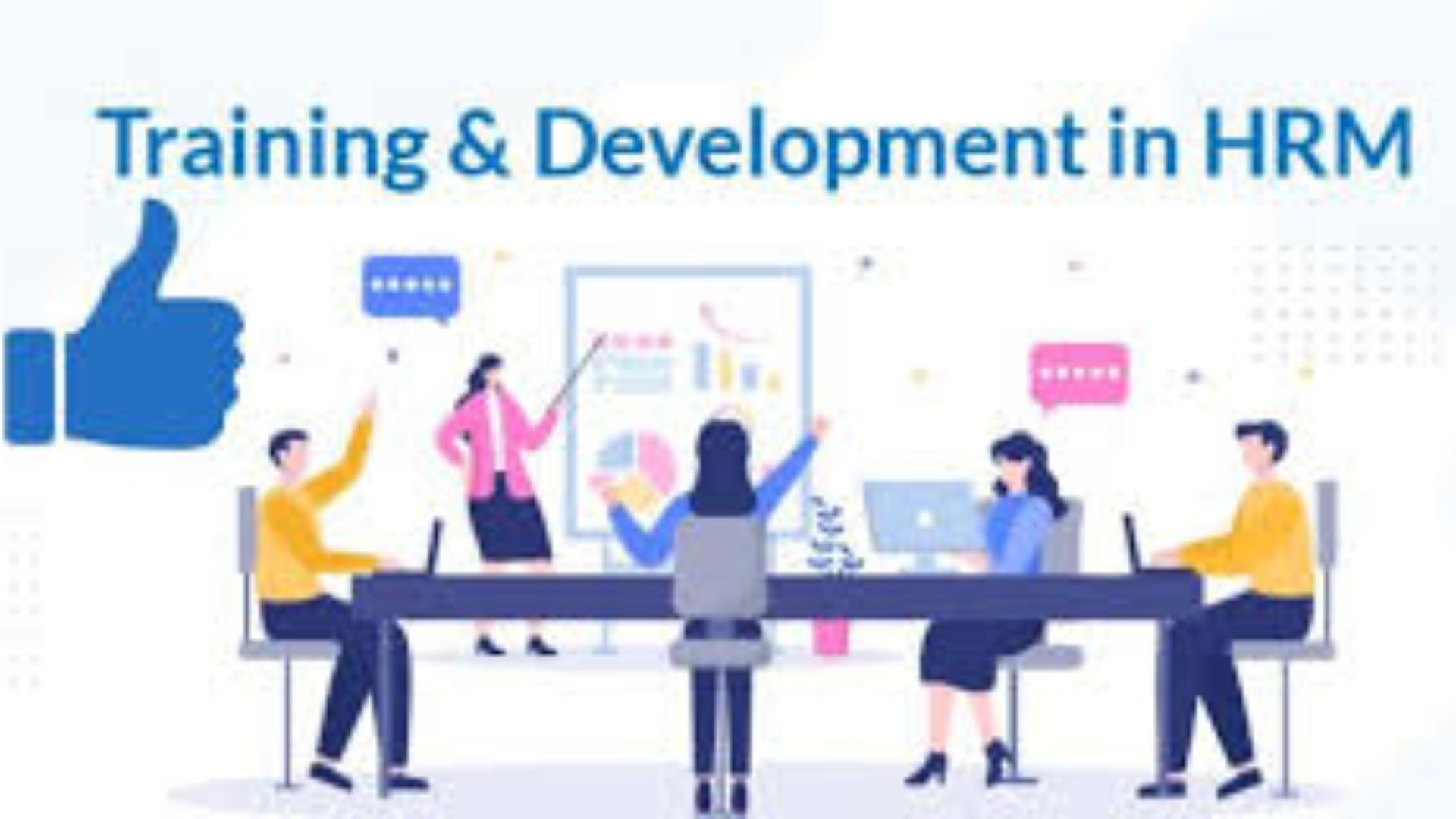What Is Management Development Training?
Simply put, management development training helps managers become better leaders. It’s not just another dull presentation filled with slides and theory — it’s a hands-on learning experience designed to strengthen leadership, communication, decision-making, and team management skills.
When a company invests in management development training, it’s showing commitment to its people. It’s a way of saying, “We believe in your potential to lead.” Through this process, managers learn how to tackle challenges, lead confidently, and make smarter choices that push the organisation forward.
In short, management development training isn’t just about learning — it’s about transforming.
Why Management Development Training Matters Today
In today’s fast-paced world, businesses evolve rapidly, technology changes daily, and employees expect more from their leaders. This makes management development training a necessity, not an option.
A good manager helps a team function; a great manager inspires excellence. With proper training, leaders gain the ability to handle pressure, resolve conflicts, and communicate effectively.
Companies that prioritise management development training often see noticeable results — higher productivity, lower turnover, and improved employee satisfaction. When you invest in your managers, your whole business benefits.
The Key Benefits of Management Development Training
1. Improves Leadership Skills
Leadership isn’t a natural talent for most — it’s a learned ability. Training teaches managers how to lead by example, motivate others, and build a positive workplace environment.
2. Enhances Decision-Making
Managers make countless decisions every day. Training helps them analyse information, think critically, and make choices that align with company objectives.
3. Builds Better Communication
Clear communication prevents confusion and boosts trust. Management development training helps leaders express ideas clearly, listen actively, and create open dialogue within their teams.
4. Boosts Employee Engagement
When managers show understanding and appreciation, employees respond with loyalty and enthusiasm. Development training strengthens this connection, leading to more engaged teams.
5. Supports Organisational Growth
Well-trained managers can guide teams more effectively, take on new challenges, and contribute to sustainable business growth.
What Makes a Great Management Development Training Program?
Not all programs deliver the same impact. The most effective ones are engaging, practical, and relevant to real challenges.
Here’s what strong management development training usually includes:
- Hands-on learning: Real-world scenarios instead of theory-based lessons.
- Personalised coaching: Feedback that helps leaders recognise their strengths and improve weaknesses.
- Leadership workshops: Focused sessions on motivation, delegation, and problem-solving.
- Soft skills training: Emphasis on communication, empathy, and emotional intelligence.
- Continuous learning: Ongoing development that evolves with company needs.
The aim isn’t to create flawless managers but adaptable leaders who grow alongside their teams.
Common Topics Covered in Management Development Training
A robust program typically explores several core areas:
1. Communication and Interpersonal Skills
Managers learn to give constructive feedback, manage difficult conversations, and build mutual trust.
2. Time and Stress Management
Training teaches managers how to prioritise tasks, stay organised, and maintain balance under pressure.
3. Conflict Resolution
Conflict is inevitable — but how it’s handled matters. Managers learn to resolve issues fairly and turn challenges into learning opportunities.
4. Strategic Thinking
Leaders are trained to think long-term, align actions with company goals, and adapt to change.
5. Team Building
Managers discover how to recognise team strengths, delegate effectively, and nurture collaboration.
How Management Development Training Shapes Company Culture
Leadership has a direct influence on workplace culture. When managers lead with confidence, empathy, and integrity, employees feel supported and motivated.
Through training, managers understand how their behaviour impacts the team dynamic. Over time, this fosters a culture of respect, growth, and shared purpose.
Without development opportunities, businesses risk poor communication, low morale, and high turnover. But when companies invest in training their leaders, they build a culture rooted in trust and collaboration.
The Role of Emotional Intelligence in Management Development
The best leaders today combine intelligence with empathy. Emotional intelligence (EQ) enables managers to recognise emotions — both their own and others’ — and use that understanding to guide behaviour.
Training often includes exercises that develop self-awareness, empathy, and emotional control. Leaders who practice EQ can better manage stress, respond thoughtfully, and create strong team relationships.
When managers lead with empathy, employees feel heard and valued. This builds trust, enhances teamwork, and fuels creativity — all essential traits for thriving organisations.
The ROI of Investing in Management Development Training
Some companies view training as an expense, but it’s actually a high-return investment.
Here’s how it pays off:
- Increased productivity: Trained managers lead teams that perform efficiently.
- Lower turnover: Employees stay when they have inspiring leaders.
- More innovation: Confident managers encourage experimentation and new ideas.
- Improved customer satisfaction: Motivated teams create better customer experiences.
In the long run, management development training strengthens every layer of the business — from people to profits.
How to Choose the Right Management Development Training Program
Selecting the right program ensures maximum impact. Consider the following factors:
- Relevance: The content should address your company’s goals and challenges.
- Customisation: Each organisation is unique — training should reflect that.
- Practical focus: Real-world applications matter more than theory.
- Expert facilitators: Trainers with real management experience make a difference.
- Follow-up support: The best programs offer continuous learning, not one-off sessions.
The right choice can reshape your organisation’s leadership landscape for years to come.
How to Encourage Managers to Embrace Training
Some managers may feel too experienced or too busy for development programs. The secret is to make the training meaningful and engaging.
Ways to encourage participation:
- Emphasise personal benefits and career growth.
- Use interactive methods such as role-playing and discussions.
- Offer mentorship and ongoing support.
- Recognise progress and celebrate milestones.
When managers see real improvement in their leadership and communication, they’ll value the experience and fully engage.
Real-Life Examples of Management Development Success
Several global organisations have proven the power of continuous leadership development:
- Google’s “Project Oxygen” turned research data into actionable insights for leaders, improving team satisfaction and performance.
- General Electric (GE) has long championed leadership development, shaping some of the world’s most influential executives.
- IBM focuses on adaptability and digital transformation through ongoing management education.
These examples show that leadership training isn’t a passing trend — it’s a foundation for lasting success.
Final Thoughts on Management Development Training
At the core of every thriving business is strong, confident leadership. Great leaders aren’t born — they’re developed through intentional learning and growth.
Management development training equips leaders with the skills to inspire, communicate, and make sound decisions. It strengthens both people and performance.
If your organisation hasn’t yet embraced management development training, there’s no better time than now. The future belongs to companies that nurture their people — one leader at a time.
FAQs About Management Development Training
Q1. What is the main goal of management development training?
The main goal is to build leadership and management skills so that managers can guide teams effectively and support business success.
Q2. How long does a typical program last?
It varies — some programs run for a few days, while others extend over several months with workshops and coaching sessions.
Q3. Who should participate in management development training?
Anyone in a leadership or supervisory role — from team leads to senior managers — can benefit.
Q4. How does this training improve employee engagement?
Managers learn to communicate better and show empathy, making employees feel appreciated and motivated.
Q5. Is management development training worth the cost?
Absolutely. The long-term gains in productivity, retention, and team performance far outweigh the initial investment.








